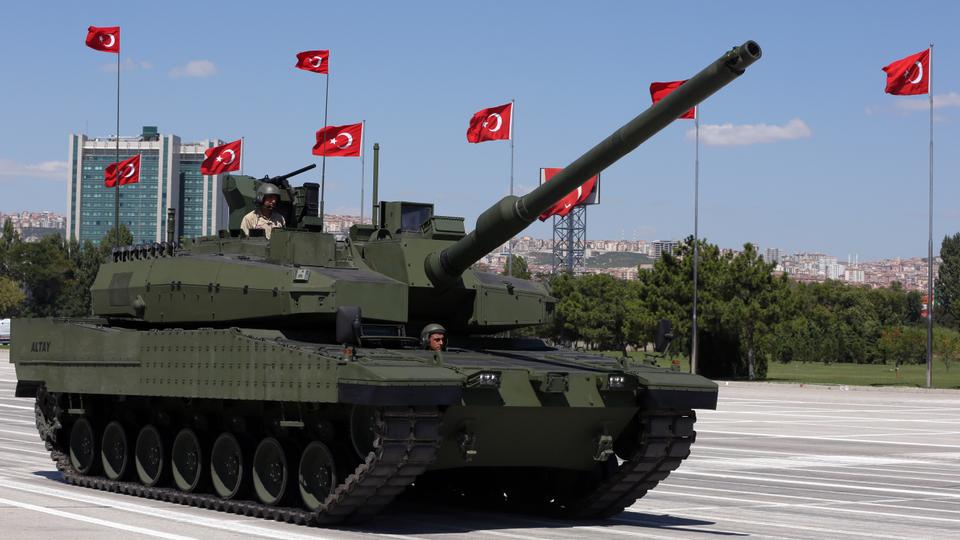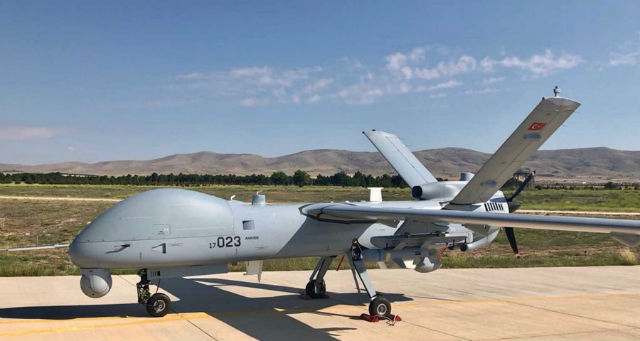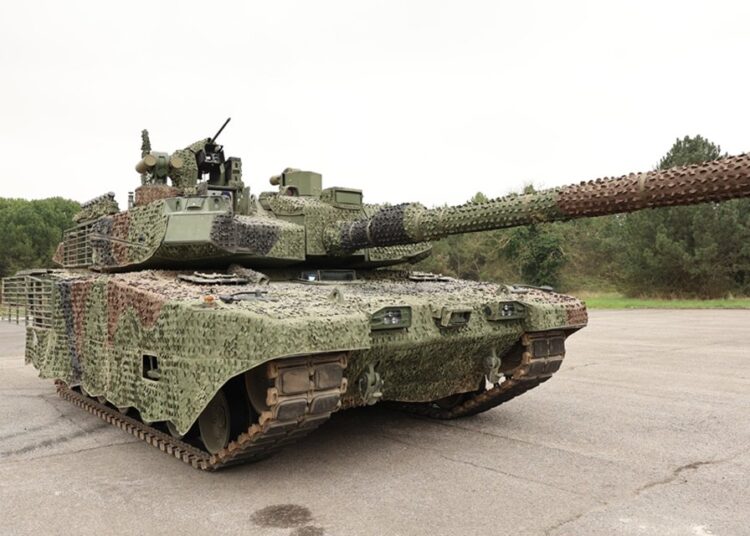Levent Kenez/Stockholm
The Turkish Parliament’s Defense Committee Chairman and former defense minister, Hulusi Akar, stated during a committee meeting on July 14 that the most significant issue facing the Turkish defense industry is the unofficial embargoes imposed by allies on Turkey. According to Akar, allies are indirectly implementing embargoes by withholding approval for order requests from Turkey without officially declaring them.
Akar pointed out that in the past embargoes were also imposed on Turkey, and at that time they knew clearly which military products Turkey could not purchase. He expressed concern that in the current situation, it is not clear which products are not being sold to Turkey due to the covert nature of the restrictions.
Akar emphasized the lesson to be learned from this situation, saying: “We should make diplomatic efforts to remove the obstacles and purchase whatever we can with our money. This is the first approach. However, in the defense industry, we must advance domestic production as much as possible.”
Minutes of the parliamentary committee meeting:
Turkish President Recep Tayyip Erdogan, speaking at a press conference before departing for the July 11-12 NATO summit in Vilnius, had expressed his displeasure over restrictions and sanctions imposed on Turkey’s arms purchases, claiming that NATO allies’ military embargoes are preventing Turkey from reaching the alliance’s defense spending target.
“Unjust restrictions and obstacles imposed by some of our allies are limiting us. Our country, which reached almost 2 percent defense spending in 2019, has currently declined to around 1.30 percent,” Erdogan told reporters, highlighting the commitment of a minimum of 2 percent of gross domestic product (GDP) of NATO members to defense spending.
Turkey’s most significant procurement challenge involves acquiring new F-16 fighter jets from the United States to upgrade its outdated fleet
In 2021 the US administration officially removed Turkey from the F-35 Joint Strike Fighter program due to Ankara’s purchase of a Russian S-400 missile system in 2017.
In February US senators from both the Democratic and Republican parties wrote a letter to President Joe Biden urging him to delay a $20 billion F-16 sale to Turkey until Sweden and Finland’s NATO accession is approved. Finland officially became NATO’s newest member on April 4.
In January the Finnish Ministry of Defense announced the lifting of the arms export embargo on Turkey which had been in effect since 2019 and granted a license for sales.
The permission to sell weapons to Turkey was one of the conditions put forward by Turkey for approving Finland and Sweden’s NATO membership.
Riikka Pitkanen, an advisor to the Finnish Ministry of Defense, told the media that an export license had been granted for the sale of steel to be used for armor to a Turkish company.
The Swedish government had been stating that there was no general arms embargo on Turkey. However, in practice, the Inspectorate of Strategic Products (ISP) had not approved any arms sales applications to Turkey since 2019.
ISP officials, during negotiations with Turkey on NATO membership, indicated to the Swedish media that they had taken a new position based on the emerging conditions. They stated last year that they would once again be granting permission for arms sales to Turkey.
The United Kingdom had previously lifted the arms embargo on Turkey.
At the forefront of countries posing difficulties in Turkey’s procurement is Germany, which has been withholding export permits for firms supplying Turkey with much-needed engines and power systems for its domestic projects.

For example, in 2021 the Turkish Defense Ministry advocated for the utilization of German technology as the optimal solution for a domestic tank project called Altay since the Altay had been previously developed based on a German engine, and finding an alternative engine from another country and integrating it into the tank would be a complex process requiring design changes.
Despite all efforts, the Germans refused to lift the engine embargo, leaving a Korean alternative as the only feasible option
In 2021 the Canadian government imposed an arms embargo on Turkey due to the role of Turkish-made military drones in the conflict between Azerbaijan and Armenia in the Nagorno-Karabakh region in 2020.
Following the embargo, Canada decided to halt the export of various products, including monitoring systems and laser optic components used in Turkish drones including Baykar and Anka.

According to Mélanie Joly, the Canadian Ministry of Foreign Affairs spokesperson, claims suggesting Canada has lifted its arms embargo on Turkey are false. In a recent statement Joly said, “It is not true that the arms embargo against Turkey has been lifted. Export controls against Turkey continue.” The controversy surrounding the arms embargo arose following a meeting between Turkish President Erdogan and Canadian Prime Minister Justin Trudeau during the recent NATO summit. However, Trudeau’s office isn’t denying reports claiming there is a deal to open talks about the arms ban.
During his campaign for re-election in May, Erdogan repeatedly claimed that Turkey’s reliance on foreign sources had decreased as a result of its development of its defense industry. However, Turkey’s decreasing defense industry expenditures are not solely attributed to the restrictions imposed by Western countries. In May Muhsin Dere, Turkey’s former deputy minister of defense, admitted that the government cannot fully meet the needs of the military in terms of supplying it with new equipment and weapons due to the poor state of the Turkish economy, at a meeting of a pro-government business platform run by Erdogan family members that brings together industrialists from around İstanbul.
It is no secret that Turkey faces difficulties in sourcing the materials needed for its ambitious defense industry projects. Nordic Monitor previously reported that in an interview with a Turkish TV station on September 4, 2022 İsmail Demir, the former head of the Presidency of the Defense Industry (Savunma Sanayii Baskanligi, SSB) admitted that the agency faced challenges in developing power packs including engines and transmissions for various defense projects.
It’s not only the parts but also a shortage of qualified engineers that is hindering progress, he said.
“The engine issue is a known [problem]. As for trained personnel and expertise, we also don’t have extensive experience. There are a limited number of experts [in Turkey],” said Demir, who was sanctioned by the US over Turkey’s purchase of the Russian S-400 long-range missile system.
Turkey has several national aircraft and tank projects, but they suffered setbacks because of the difficulty in finding engines and transmission systems to power the equipment. The Erdogan government has invested heavily in manufacturing engines domestically, with limited success thus far in the testing and integration stages.












